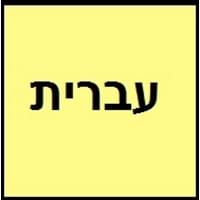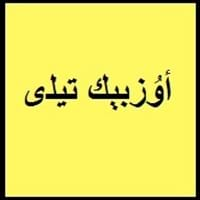Hebrew vs Uzbek
Countries
Israel
Turkey, Uzbekistan
National Language
Israel
Afganistan, China, Kazakhstan, Kyrgyzstan, Russia, Tajikistan, Turkmenistan, Uzbekistan
Second Language
Israel
Not spoken in any of the countries
Speaking Continents
Africa, Asia, Europe
Middle East
Minority Language
Poland
Not spoken in any of the countries
Regulated By
Academy of the Hebrew Language
Not Available
Interesting Facts
- The original language of Bible is Hebrew.
- The men and women use different verbs in hebrew language.
- Uzbek is officially written in the Latin script, but many people still use Cyrillic script.
- In Uzbek language, there are many loanwords from Russian, Arabic and Persian.
Similar To
Arabic and Aramaic languages
Kazakh and Uyghur Languages
Derived From
Aramaic Language
Not Available
Alphabets in
Hebrew-Alphabets.jpg#200
Uzbek-Alphabets.jpg#200
Scripts
Hebrew
Arabic, Cyrillic, Latin
Writing Direction
Right-To-Left, Horizontal
Not Available
Hello
שלום (Shalom)
Salom
Thank You
תודה (Toda)
Rakhmat
How Are You?
מה שלומך? (ma shlomxa)
Qalay siz?
Good Night
לילה טוב (Laila tov)
Hayirli tun
Good Evening
ערב טוב (Erev tov)
Hayirli kech
Good Afternoon
אחר צהריים טובים (Achar tzahara'im tovim)
Hayirli kun
Good Morning
בוקר טוב (Boker tov)
Hayirli tong
Please
בבקשה (bevekshah)
Iltimos
Sorry
סליחה! (Slicha)
Kechiring!
Bye
להתראות (Lehitraot)
Xayr
I Love You
אני אוהבת אותך (Ani ohevet otcha)
Sizni sevaman
Excuse Me
בבקשה!
Iltimos! Menga qarang
Dialect 1
Ashkenazi Hebrew
Tashkent
Where They Speak
Israel
Not Available
Dialect 2
Samaritan Hebrew
Afghan
Where They Speak
Israel, Palestine
Not Available
Dialect 3
Yemenite Hebrew
Ferghana
Where They Speak
Israel
Not Available
Speaking Population
Not Available
Second Language Speakers
Not Available
Native Name
עברית / עִבְרִית (ivrit)
أۇزبېك ﺗﻴﻠی o'zbek tili ўзбек тили (o‘zbek tili)
Alternative Names
Israeli, Ivrit
Annamese, Ching, Gin, Jing, Kinh, Viet
French Name
hébreu
ouszbek
German Name
Hebräisch
Usbekisch
Pronunciation
[(ʔ)ivˈʁit] - [(ʔ)ivˈɾit]
Not Available
Ethnicity
Not Available
Uzbek
Origin
1000 BC
9th–12th centuries AD
Language Family
Afro-Asiatic Family
Turkic Family
Branch
Canaanitic
Southestern(Chagatai)
Early Forms
Biblical Hebrew, Mishnaic Hebrew, Medieval Hebrew, Hebrew
Chagatay
Standard Forms
Modern Hebrew
Uzbek
Signed Forms
Signed Hebrew
Not Available
Scope
Individual
Macrolanguage
ISO 639 6
Not Available
Not Available
Glottocode
hebr1246
uzbe1247
Linguasphere
12-AAB-a
No data available
Language Type
Living
Living
Language Linguistic Typology
Subject-Verb-Object, Verb-Subject-Object
Not Available
Language Morphological Typology
Fusional, Synthetic
Not Available
Hebrew and Uzbek Language History
Comparison of Hebrew vs Uzbek language history gives us differences between origin of Hebrew and Uzbek language. History of Hebrew language states that this language originated in 1000 BC whereas history of Uzbek language states that this language originated in 9th–12th centuries AD. Family of the language also forms a part of history of that language. More on language families of these languages can be found out on Hebrew and Uzbek Language History.
Hebrew and Uzbek Greetings
People around the world use different languages to interact with each other. Even if we cannot communicate fluently in any language, it will always be beneficial to know about some of the common greetings or phrases from that language. This is where Hebrew and Uzbek greetings helps you to understand basic phrases in Hebrew and Uzbek language. Hebrew word for "Hello" is שלום (Shalom) or Uzbek word for "Thank You" is Rakhmat. Find more of such common Hebrew Greetings and Uzbek Greetings. These greetings will help you to be more confident when conversing with natives that speak these languages.
Hebrew vs Uzbek Difficulty
The Hebrew vs Uzbek difficulty level basically depends on the number of Hebrew Alphabets and Uzbek Alphabets. Also the number of vowels and consonants in the language plays an important role in deciding the difficulty level of that language. The important points to be considered when we compare Hebrew and Uzbek are the origin, speaking countries, language family, different greetings, speaking population of these languages. Want to know in Hebrew and Uzbek, which language is harder to learn? Time required to learn Hebrew is 44 weeks while to learn Uzbek time required is 44 weeks.





